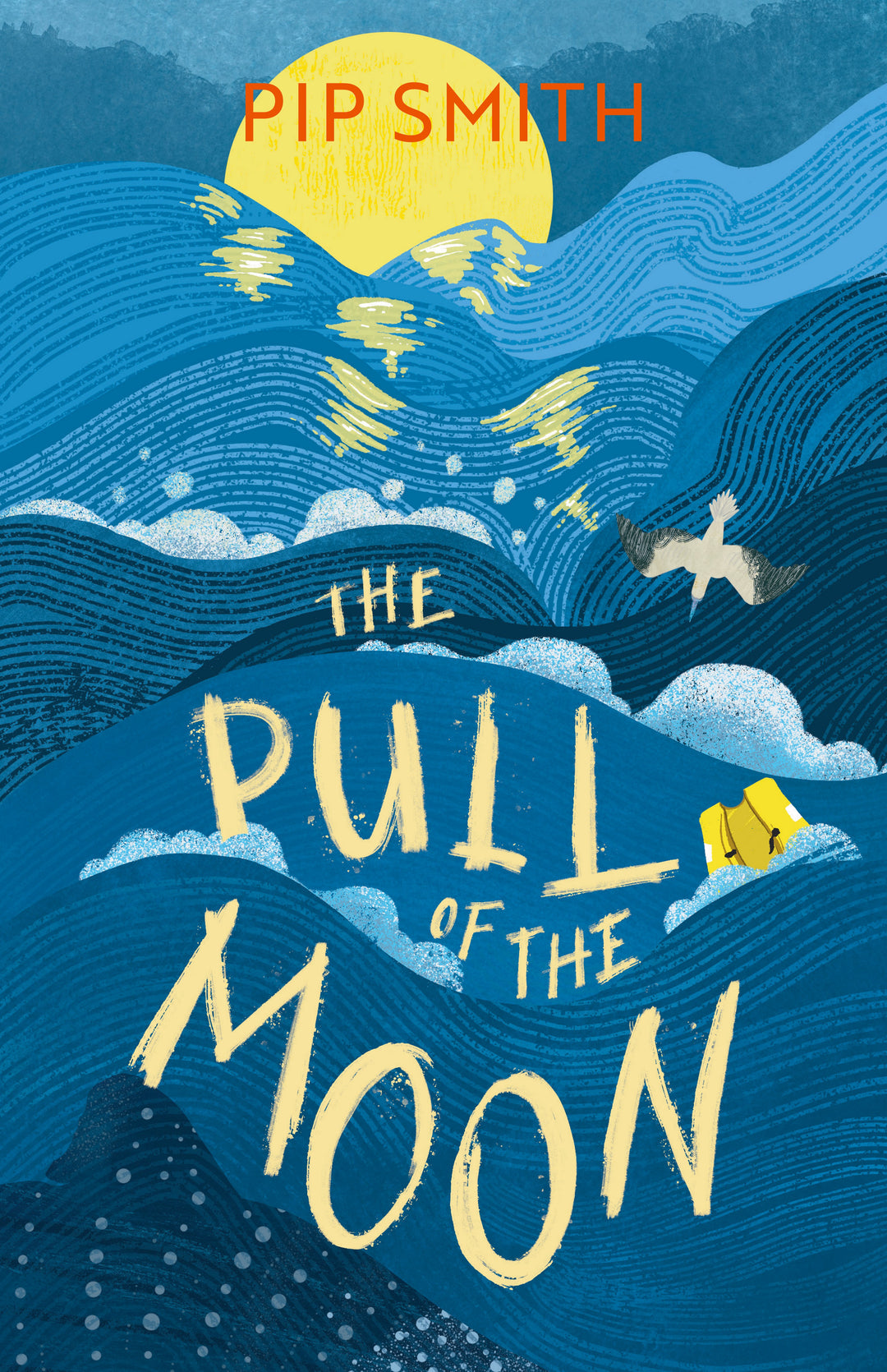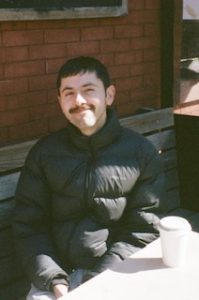 The poem diverges from the wistful, reflective joy of the wedding to the speaker’s own more volatile personal history, contrasting the innocence of the little girl singing karaoke and her own “vanilla ice cream” sweet girlhood. The speaker’s “I” creates a new emotional tenor for the poem, and the use of polysyndeton to connect clauses blurs time, creating one rich, expansive moment that contains the feelings of the speaker’s past, the reality of her present, the little girl’s identification, and Swift’s artistic influence, not to mention the reader’s own emotional resonance with the poem itself.
The poem diverges from the wistful, reflective joy of the wedding to the speaker’s own more volatile personal history, contrasting the innocence of the little girl singing karaoke and her own “vanilla ice cream” sweet girlhood. The speaker’s “I” creates a new emotional tenor for the poem, and the use of polysyndeton to connect clauses blurs time, creating one rich, expansive moment that contains the feelings of the speaker’s past, the reality of her present, the little girl’s identification, and Swift’s artistic influence, not to mention the reader’s own emotional resonance with the poem itself.
Read more →
 We have a copy of Tiny Vices by Linda Dahl to give away!
We have a copy of Tiny Vices by Linda Dahl to give away! Mehta’s mind thinks in music. We understand this musical schema because of Mehta’s mother, who took her to the symphony when she was a child. Mehta describes the feeling she had after the concert, “by the time I returned to our night-sky driveway I would have violins and trumpets in my bones” (46). Currently, Mehta is the poet-in-residence at New Chamber Ballet. Knowing this conjures up a sweet sensation, like the taste of honey on the tongue.
Mehta’s mind thinks in music. We understand this musical schema because of Mehta’s mother, who took her to the symphony when she was a child. Mehta describes the feeling she had after the concert, “by the time I returned to our night-sky driveway I would have violins and trumpets in my bones” (46). Currently, Mehta is the poet-in-residence at New Chamber Ballet. Knowing this conjures up a sweet sensation, like the taste of honey on the tongue. There is a magical quality to the island and the sounds, with all of its seasonal and tonal changes – the turtle and crab hatchings and migrations, the moon phases that make up the section headings, and the way in which the perspectives move around the island. Smith’s writing is poetic and she doesn’t tie everything up into a neat parcel. Instead she allows the characters to develop against the backdrop of an unfolding crisis that is very much a real one in our world.
There is a magical quality to the island and the sounds, with all of its seasonal and tonal changes – the turtle and crab hatchings and migrations, the moon phases that make up the section headings, and the way in which the perspectives move around the island. Smith’s writing is poetic and she doesn’t tie everything up into a neat parcel. Instead she allows the characters to develop against the backdrop of an unfolding crisis that is very much a real one in our world. With both Men Behaving Badly and The Corona Verses, both published by Rare Bird Books, Tim O’Leary proves himself a master of the short form, unafraid to wade into messy, uncomfortable terrain with equal parts irreverence and empathy. These aren’t just stories about individual characters—they’re honest reflections of a country in flux, where comedy and tragedy often sit side by side.
With both Men Behaving Badly and The Corona Verses, both published by Rare Bird Books, Tim O’Leary proves himself a master of the short form, unafraid to wade into messy, uncomfortable terrain with equal parts irreverence and empathy. These aren’t just stories about individual characters—they’re honest reflections of a country in flux, where comedy and tragedy often sit side by side. What an amazing collection. The best advice I can give a potential reader: pour a cup of coffee or a glass of wine, or even better, both, sit in a dark room with only one light on to illuminate the pages, and sit in the most comfortable chair you have. Prepare to stay awhile. You won’t want to stop.
What an amazing collection. The best advice I can give a potential reader: pour a cup of coffee or a glass of wine, or even better, both, sit in a dark room with only one light on to illuminate the pages, and sit in the most comfortable chair you have. Prepare to stay awhile. You won’t want to stop. Engaging the emotions that emanate through Li Po’s work, and with delicate strokes, Gonzalez packs maximum impact into snapshots of the natural world. ‘Pink yarrow garden’ and ‘patchwork planets’. Traversing the rural and the urban, the seen and the suggested. Lotus flowers, urban streets and vast mountains.
Engaging the emotions that emanate through Li Po’s work, and with delicate strokes, Gonzalez packs maximum impact into snapshots of the natural world. ‘Pink yarrow garden’ and ‘patchwork planets’. Traversing the rural and the urban, the seen and the suggested. Lotus flowers, urban streets and vast mountains. The eclectic mix of suburban memories and contemporary city scenes, meditations on motherhood, poignant encounters interspersed with a shorter clip of found poetry; ars poetica adds levity before Temporary Beast resurfaces in longer form poems delving primarily into the specificity of memories. Her sister crashes the Camry outside the family home, the names of neighbors and the local pharmacist meander Solfrian’s poems and emotions surrounding her mother’s death.
The eclectic mix of suburban memories and contemporary city scenes, meditations on motherhood, poignant encounters interspersed with a shorter clip of found poetry; ars poetica adds levity before Temporary Beast resurfaces in longer form poems delving primarily into the specificity of memories. Her sister crashes the Camry outside the family home, the names of neighbors and the local pharmacist meander Solfrian’s poems and emotions surrounding her mother’s death.  Madera’s book emphasizes a different kind of narrative pilgrim. Instead of a traveler headed out in search of a story, as Phil Cousineau writes in The Art of Pilgrimage: the journey “as nature’s pattern of regeneration, a journey consisting of departure, arrival, and return,” Madera’s narrators grapple with a perpetual sense of being adrift and often exhausted and burnt by the post-industrial world. These stories are about diasporas, transformations, fragmentations, and layers of meaning.
Madera’s book emphasizes a different kind of narrative pilgrim. Instead of a traveler headed out in search of a story, as Phil Cousineau writes in The Art of Pilgrimage: the journey “as nature’s pattern of regeneration, a journey consisting of departure, arrival, and return,” Madera’s narrators grapple with a perpetual sense of being adrift and often exhausted and burnt by the post-industrial world. These stories are about diasporas, transformations, fragmentations, and layers of meaning. The poem diverges from the wistful, reflective joy of the wedding to the speaker’s own more volatile personal history, contrasting the innocence of the little girl singing karaoke and her own “vanilla ice cream” sweet girlhood. The speaker’s “I” creates a new emotional tenor for the poem, and the use of polysyndeton to connect clauses blurs time, creating one rich, expansive moment that contains the feelings of the speaker’s past, the reality of her present, the little girl’s identification, and Swift’s artistic influence, not to mention the reader’s own emotional resonance with the poem itself.
The poem diverges from the wistful, reflective joy of the wedding to the speaker’s own more volatile personal history, contrasting the innocence of the little girl singing karaoke and her own “vanilla ice cream” sweet girlhood. The speaker’s “I” creates a new emotional tenor for the poem, and the use of polysyndeton to connect clauses blurs time, creating one rich, expansive moment that contains the feelings of the speaker’s past, the reality of her present, the little girl’s identification, and Swift’s artistic influence, not to mention the reader’s own emotional resonance with the poem itself. This collaboration with Theo Ellsworth is unique. Ellsworth’s style is reminiscent of R. Crumb, the underground comics pioneer whose iconic black-and-white cross-hatching and the exaggerated features of his character are instantly recognizable. Combined with Dara Horn’s erudition, the comic book style makes the ancient story seem somehow more relevant and more subversive.
This collaboration with Theo Ellsworth is unique. Ellsworth’s style is reminiscent of R. Crumb, the underground comics pioneer whose iconic black-and-white cross-hatching and the exaggerated features of his character are instantly recognizable. Combined with Dara Horn’s erudition, the comic book style makes the ancient story seem somehow more relevant and more subversive. The author of Bastardland talks about his latest book, his writing habits, the satisfaction of writing, social media, on unsettling a reader, the joys of publication, and more.
The author of Bastardland talks about his latest book, his writing habits, the satisfaction of writing, social media, on unsettling a reader, the joys of publication, and more.